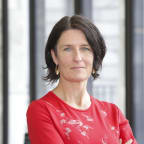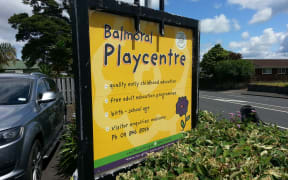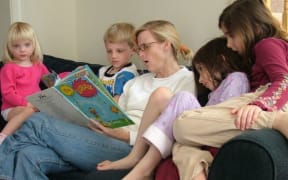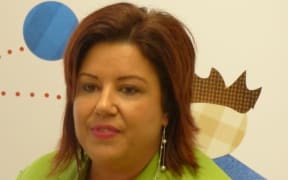A programme that has helped tens of thousands of parents during its 25 years is to be scrapped.

Photo: 123rf.com
The government is moving the funding for Parents as First Teachers (PAFT) to a "more targeted programme" because that is where the help is needed, it says.
The programme has been running since 1991 and is offered in 36 locations around the country.
Parent educators make personal visits to families and give guidance as children grow and develop.
Robi Harrington is one of the educators, based at Wellington's SPACE NZ Trust.
She said she felt "gutted" to hear the programme's days were numbered.
"[I'm] very upset actually. I'd probably feel better if I knew there was some alternative available to our families, I mean I'm just very upset for them - yeah, it's not a good feeling."
From October, the annual $7.3 million in funding will go to the Family Start programme instead.
But Ms Harrington said PAFT had been a targeted programme for a very long time.
"Because in Wellington particularly we don't have Family Start, or Early Start or any of those other intervention programmes for the vulnerable, we have ended up with a lot of those very very needy families.
"We've got a list of criteria for our families and a lot of the 105 that we are funded for have four or five criteria so they are vulnerable families."
Murray Edridge from the Ministry of Social Development said the ministry was just not sure how effective the programme was.
"There are a number of anecdotal things and a number of reports that indicate, yes it would add some value, the question is - does it add as much value as something like Family Start which is more intensively focused and more focused at a client base that has a higher level of need."
Plunket also delivers the programme. Acting chief executive Amanda Malu was more circumspect about losing the funding.
"It was a successful programme in its day. I think what we've discovered recently with a lot of these sorts of programmes is they're not having the impact on the highest-needs families.
"So we understand that it's a focus on investing in the families that need the help and the assistance the most."
Social Development Minister Anne Tolley said making the money more targeted fitted with the government's social investment approach.
However she acknowledged there were some families who would now not get home visits.
"Yes, some families will lose the small service that they had, and we will do what we can over the next few years to try to fill some of those gaps, but it's really urgent that we start working with more of these really vulnerable families."
Ms Tolley said the move would mean some vulnerable families who were currently missing out would be able to get support.
But Labour's health spokesperson, Annette King, said killing off PAFT was a huge disappointment.
"Every child in New Zealand should get the best start in life, from before birth up until the age of three.
"What this means is that certainly money is going to go to those who need it, but it is being taken off those that you'd probably call middle families, and I think that's a move in the wrong direction, it should be available for every child, every parent."
Green Party education spokesperson Catherine Delahunty said narrowing the targeting did not necessarily result in positive change.
"This government is absolutely obsessed with focusing on narrower and narrower criteria of what is a vulnerable child, instead of looking at the social conditions such as low wages, poor housing, unemployment and poverty which lead to some very tough situations for families.
"Taking away the resources out of a pro-active positive thing like PAFT, there's no guarantee that's going to make any difference either."
The Ministry of Social Development said the PAFT contracts had been extended until the end of September so providers had time to work through the transition phase including sorting out any employment issues.





